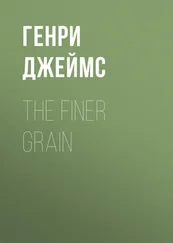Генри Джеймс - The Europeans
Здесь есть возможность читать онлайн «Генри Джеймс - The Europeans» — ознакомительный отрывок электронной книги совершенно бесплатно, а после прочтения отрывка купить полную версию. В некоторых случаях можно слушать аудио, скачать через торрент в формате fb2 и присутствует краткое содержание. Жанр: foreign_humor, foreign_antique, foreign_prose, на английском языке. Описание произведения, (предисловие) а так же отзывы посетителей доступны на портале библиотеки ЛибКат.
- Название:The Europeans
- Автор:
- Жанр:
- Год:неизвестен
- ISBN:нет данных
- Рейтинг книги:3 / 5. Голосов: 1
-
Избранное:Добавить в избранное
- Отзывы:
-
Ваша оценка:
- 60
- 1
- 2
- 3
- 4
- 5
The Europeans: краткое содержание, описание и аннотация
Предлагаем к чтению аннотацию, описание, краткое содержание или предисловие (зависит от того, что написал сам автор книги «The Europeans»). Если вы не нашли необходимую информацию о книге — напишите в комментариях, мы постараемся отыскать её.
The Europeans — читать онлайн ознакомительный отрывок
Ниже представлен текст книги, разбитый по страницам. Система сохранения места последней прочитанной страницы, позволяет с удобством читать онлайн бесплатно книгу «The Europeans», без необходимости каждый раз заново искать на чём Вы остановились. Поставьте закладку, и сможете в любой момент перейти на страницу, на которой закончили чтение.
Интервал:
Закладка:
Charlotte blushed quickly; she had never yet heard her personal appearance alluded to in a loud, expressive voice. Gertrude looked away—not at Felix; she was extremely pleased. It was not the compliment that pleased her; she did not believe it; she thought herself very plain. She could hardly have told you the source of her satisfaction; it came from something in the way the Baroness spoke, and it was not diminished—it was rather deepened, oddly enough—by the young girl’s disbelief. Mr. Wentworth was silent; and then he asked, formally, “Won’t you come into the house?”
“These are not all; you have some other children,” said the Baroness.
“I have a son,” Mr. Wentworth answered.
“And why doesn’t he come to meet me?” Eugenia cried. “I am afraid he is not so charming as his sisters.”
“I don’t know; I will see about it,” the old man declared.
“He is rather afraid of ladies,” Charlotte said, softly.
“He is very handsome,” said Gertrude, as loud as she could.
“We will go in and find him. We will draw him out of his cachette .” And the Baroness took Mr. Wentworth’s arm, who was not aware that he had offered it to her, and who, as they walked toward the house, wondered whether he ought to have offered it and whether it was proper for her to take it if it had not been offered. “I want to know you well,” said the Baroness, interrupting these meditations, “and I want you to know me.”
“It seems natural that we should know each other,” Mr. Wentworth rejoined. “We are near relatives.”
“Ah, there comes a moment in life when one reverts, irresistibly, to one’s natural ties—to one’s natural affections. You must have found that!” said Eugenia.
Mr. Wentworth had been told the day before by Felix that Eugenia was very clever, very brilliant, and the information had held him in some suspense. This was the cleverness, he supposed; the brilliancy was beginning. “Yes, the natural affections are very strong,” he murmured.
“In some people,” the Baroness declared. “Not in all.” Charlotte was walking beside her; she took hold of her hand again, smiling always. “And you, cousine , where did you get that enchanting complexion?” she went on; “such lilies and roses?” The roses in poor Charlotte’s countenance began speedily to predominate over the lilies, and she quickened her step and reached the portico. “This is the country of complexions,” the Baroness continued, addressing herself to Mr. Wentworth. “I am convinced they are more delicate. There are very good ones in England—in Holland; but they are very apt to be coarse. There is too much red.”
“I think you will find,” said Mr. Wentworth, “that this country is superior in many respects to those you mention. I have been to England and Holland.”
“Ah, you have been to Europe?” cried the Baroness. “Why didn’t you come and see me? But it’s better, after all, this way,” she said. They were entering the house; she paused and looked round her. “I see you have arranged your house—your beautiful house—in the—in the Dutch taste!”
“The house is very old,” remarked Mr. Wentworth. “General Washington once spent a week here.”
“Oh, I have heard of Washington,” cried the Baroness. “My father used to tell me of him.”
Mr. Wentworth was silent a moment, and then, “I found he was very well known in Europe,” he said.
Felix had lingered in the garden with Gertrude; he was standing before her and smiling, as he had done the day before. What had happened the day before seemed to her a kind of dream. He had been there and he had changed everything; the others had seen him, they had talked with him; but that he should come again, that he should be part of the future, part of her small, familiar, much-meditating life—this needed, afresh, the evidence of her senses. The evidence had come to her senses now; and her senses seemed to rejoice in it. “What do you think of Eugenia?” Felix asked. “Isn’t she charming?”
“She is very brilliant,” said Gertrude. “But I can’t tell yet. She seems to me like a singer singing an air. You can’t tell till the song is done.”
“Ah, the song will never be done!” exclaimed the young man, laughing. “Don’t you think her handsome?”
Gertrude had been disappointed in the beauty of the Baroness Münster; she had expected her, for mysterious reasons, to resemble a very pretty portrait of the Empress Josephine, of which there hung an engraving in one of the parlors, and which the younger Miss Wentworth had always greatly admired. But the Baroness was not at all like that—not at all. Though different, however, she was very wonderful, and Gertrude felt herself most suggestively corrected. It was strange, nevertheless, that Felix should speak in that positive way about his sister’s beauty. “I think I shall think her handsome,” Gertrude said. “It must be very interesting to know her. I don’t feel as if I ever could.”
“Ah, you will know her well; you will become great friends,” Felix declared, as if this were the easiest thing in the world.
“She is very graceful,” said Gertrude, looking after the Baroness, suspended to her father’s arm. It was a pleasure to her to say that anyone was graceful.
Felix had been looking about him. “And your little cousin, of yesterday,” he said, “who was so wonderfully pretty—what has become of her?”
“She is in the parlor,” Gertrude answered. “Yes, she is very pretty.” She felt as if it were her duty to take him straight into the house, to where he might be near her cousin. But after hesitating a moment she lingered still. “I didn’t believe you would come back,” she said.
“Not come back!” cried Felix, laughing. “You didn’t know, then, the impression made upon this susceptible heart of mine.”
She wondered whether he meant the impression her cousin Lizzie had made. “Well,” she said, “I didn’t think we should ever see you again.”
“And pray what did you think would become of me?”
“I don’t know. I thought you would melt away.”
“That’s a compliment to my solidity! I melt very often,” said Felix, “but there is always something left of me.”
“I came and waited for you by the door, because the others did,” Gertrude went on. “But if you had never appeared I should not have been surprised.”
“I hope,” declared Felix, looking at her, “that you would have been disappointed.”
She looked at him a little, and shook her head. “No—no!”
“Ah, par exemple!” cried the young man. “You deserve that I should never leave you.”
Going into the parlor they found Mr. Wentworth performing introductions. A young man was standing before the Baroness, blushing a good deal, laughing a little, and shifting his weight from one foot to the other—a slim, mild-faced young man, with neatly-arranged features, like those of Mr. Wentworth. Two other gentlemen, behind him, had risen from their seats, and a little apart, near one of the windows, stood a remarkably pretty young girl. The young girl was knitting a stocking; but, while her fingers quickly moved, she looked with wide, brilliant eyes at the Baroness.
“And what is your son’s name?” said Eugenia, smiling at the young man.
“My name is Clifford Wentworth, ma’am,” he said in a tremulous voice.
“Why didn’t you come out to meet me, Mr. Clifford Wentworth?” the Baroness demanded, with her beautiful smile.
“I didn’t think you would want me,” said the young man, slowly sidling about.
“One always wants a beau cousin ,—if one has one! But if you are very nice to me in future I won’t remember it against you.” And Madame Münster transferred her smile to the other persons present. It rested first upon the candid countenance and long-skirted figure of Mr. Brand, whose eyes were intently fixed upon Mr. Wentworth, as if to beg him not to prolong an anomalous situation. Mr. Wentworth pronounced his name. Eugenia gave him a very charming glance, and then looked at the other gentleman.
Читать дальшеИнтервал:
Закладка:
Похожие книги на «The Europeans»
Представляем Вашему вниманию похожие книги на «The Europeans» списком для выбора. Мы отобрали схожую по названию и смыслу литературу в надежде предоставить читателям больше вариантов отыскать новые, интересные, ещё непрочитанные произведения.
Обсуждение, отзывы о книге «The Europeans» и просто собственные мнения читателей. Оставьте ваши комментарии, напишите, что Вы думаете о произведении, его смысле или главных героях. Укажите что конкретно понравилось, а что нет, и почему Вы так считаете.












